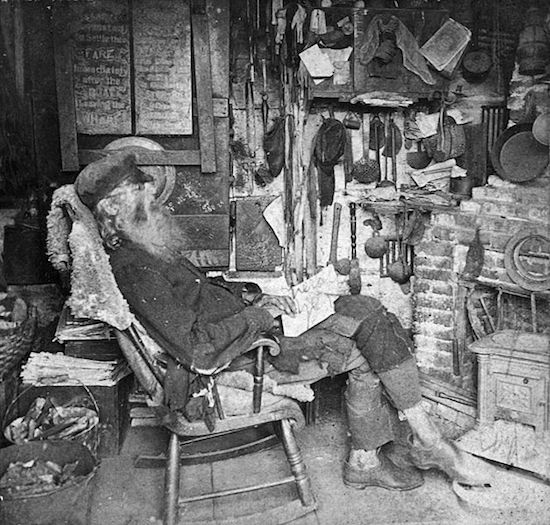As the new year rolls around, so, reliably, does a slew of articles counselling the reader on how to become physically, morally and spiritually refurbished, following the all-round degradation of not only the holiday break, but one’s life in general. Away with your gluttony, your bad habits, your wrong thoughts. To this uplifting pot-pourri of advice, another ingredient has recently been added: that of social improvement.
It is not enough that you should "detox" your body, as if this is a real possibility, rather than a thorough misunderstanding of human physiology. (Briefly: if your liver and kidneys work, your body will not retain anything resembling a toxin, and if they do not, you need urgent medical treatment, not hyper-priced magic water nor , in the meaningless phrase du jour, "eating clean".)
Latterly, you should also undergo a "digital detox". Forsake your smartphone, sequester yourself from social media – altogether unhook yourself from the grid, which studies show is causing you damage. Never mind that one may safely discount almost any claim prefaced with the words "studies show" – those studies usually proving to be made-to-order PR guff or research so nebulous and lax it melts under scrutiny like Dali’s clocks. What matters is these studies confirm something you have felt to be true: that modern life is rubbish. And what could be more modern than the Internet and mobile telecommunications?
The appeal of a fresh start is not itself to be sneered at. Most people likely enter the new year serially hungover, a few pounds heavier than usual, and wondering just what the hell they’re doing with their lives. If an arbitrary date spurs you to cut down on excess food and booze, and renew your sense of purpose, good luck to you. The "digital detox", however, is based on an idea subtly but crucially different: that the problem lies not with you, but with society. You have not done this to yourself; the world has done it to you. Disconnect from the world, and you may save your soul.
This is an old, old idea – hermits, stylites and sundry other ascetics have believed the same thing for millennia. Modern life, evidently, was rubbish even before the Julian calendar came in. But, again, if you can’t stick the world as it is, by all means bugger off and live as you see fit. Your life, your call.
Yet for many, merely to do a thing won’t suffice. One must be seen to do it. One must advertise oneself as doing it. Virtue unrecognised is virtue unrewarded. Pointing to yourself and loudly declaiming your motives as you exit the stage – from which your absence will likely be fleeting – is an essential part of the process. An absolute classic of the genre appeared last month in The Guardian, beating the New Year reformation rush to the tape. I’m not saying the author is a tedious self-publicist angling for a stunt memoir book contract. I don’t know the fellow. I’m just saying that if he were, the article wouldn’t look much different.
"Technology destroys people and places," ran the headline. "I’m rejecting it." This was a fair summary of what followed. The author, from his hand-built cabin, wrote that he would have no further truck with, "the world of complex technology entirely. That means no laptop, no internet, no phone, no washing machine, no tapped water, no gas, no fridge, no television or electronic music; no anything requiring the copper-mining, oil-rigging, plastics manufacturing essential to the production of a single toaster or solar photovoltaic system."
Fair enough, if that’s what floats your bark canoe. I don’t think this chap deserves derision just for rejecting technology, and in effect modernity. He may do as he will, or try his best as far as it’s possible. He recognises the inevitability of compromise and hypocrisy in his efforts, and in the act of writing about them, but he’s giving it a go. True, his last such gambit, when eight years previously he attempted a pilgrimage from England to Gandhi’s birthplace without using money, came unstuck no further than Calais – where, according to a wonderfully deadpan contemporary report in The Guardian, "he realised that, unable to speak French to explain his mission and unable, frankly, to get much vegan food in this part of northern Europe, he faced starvation." A shallow or cynical person might find this hilarious. Which is doubtless why I do.
No, I think he deserves derision for his assumption that this is all about society, and all about technology’s effect on society, and thus about the world and everyone else in it, when really all it’s about is him projecting his own individual discontents onto the world at large as if everyone else feels and experiences what he does. This is utter, banal self-absorption deluding itself it is universal wisdom.
He deserves derision for the Olympic-class narcissism that tells him his condition is the human condition, and that he alone has been blessed with the insight to act as he has. He seeks freedom from his "cyborg mind", as if it can only be exposure to technology that has made a pillock of him. (Among the "cyborg" technologies leading us to the "Big Brother dystopia of the techno-utopians", he lists pacemakers and hearing aids; those gifted life or sound by such devices should, presumably, give them up and take one for the team.)
Our "toxic, sedentary lifestyles", he avers, are making us physically and mentally ill. I’ve looked up the data. Our life expectancy continues steadily to increase. Our levels of physical activity correlate strongly with wealth, class and education rather than anything related to technology. It is very difficult to tell if mental illness is on the rise, or if we live in an era of greater awareness and increased diagnoses. But let’s not let the evidence interfere with what matey here feels to be the case.
"We seem to spend more time watching porn than we do making love," he writes, "relationships are breaking down because we stare into screens instead of eyes, while social media are making us antisocial." Are any of these things true? The last is a "studies show" if ever there was one. The second is pure conjecture. As for the first, the words "we seem" are a dead giveaway. I can only assume our author is speaking for himself. As one acquaintance of mine put it, "He’ll have to whittle his own porn now."
If this were a solitary twit engaging in his solitary twitdom, then no matter. He would scarcely be worth the invective. But he represents a mindset now ubiquitous, in various iterations, whether it is the move towards "simplicity" (a simplicity invariably enabled by affluence) represented in a marketing trend such as "Hygge", or the endless MADE U THINK memes, cartoons and street artworks that solemnly depict modern humanity as a blank zombie mass gazing at phone screens. As if there is nothing on those screens that links the user to anything or anyone else. As if when you use a screen to look at, share or capture such an image you are spreading higher consciousness, while everybody else is, I dunno, gawping at Kardashians. (And what if they are? People may amuse themselves as they please. At least their chosen inanity, unlike yours, makes no claim to be anything finer than it is.)
This view reached its apotheosis in the animated video for Moby’s ‘Are You Lost In The World Like Me’, an artistically ingenious and conceptually insufferable clip wherein a wide-eyed visionary homunculus looks on with heartbroken insight at a population of hypnotised human automatons who ignore him and brush aside his attempts to connect with them. Here is the key to that mindset. It boils down to the essentially adolescent attitude that everyone’s an idiot except me and my mates. It is the sense of specialness felt by every person who believes the general public is "brainwashed by the media", or in a state of false consciousness, while their own thinking rings clear and true. It is the same picture. It is the same picture of the world and one’s relationship to it that feeds political zealotry, conspiracy theorising, anti-scientific New Age beliefs in secret knowledge, and so on. I GET IT. YOU DON’T. I SEE IT. YOU CAN’T. YOU ARE ASLEEP. I AM WOKE.
So, by all means, go ahead and reject technology, cabin boy, in the hope that will reconnect you to nature, and to the authentic self you assume is the shining inheritance of a Rousseauian Golden Age, rather than the personal muddle of anxieties, desires and neuroses we must each try to untangle in our efforts to glean happiness from our existence. There’s an old hippie saying I’ve always liked: wherever you go, there you are. Even if you leave your phone behind.



